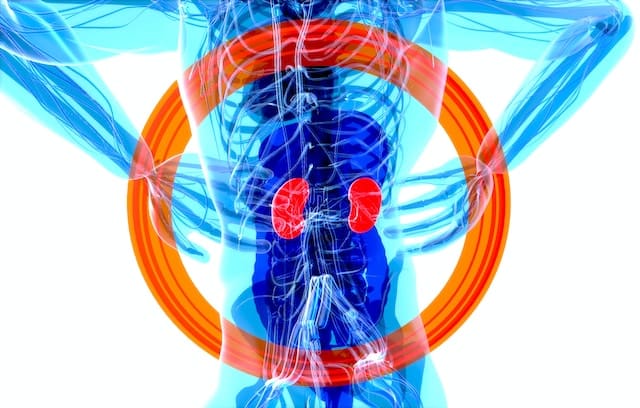Your heart works tirelessly to pump blood throughout your body, delivering essential nutrients and oxygen to your cells. However, factors like poor diet, stress, and a sedentary lifestyle can take a toll on your cardiovascular health. As more people become interested in wellness, there’s been a rising demand for natural remedies to support heart health. Looking for a natural way to treat blood clots and cardiovascular disease? Look no further than proteolytic enzymes, the remarkable peptide hydrolases that offer amazing health benefits, particularly for your cardiovascular system.
Table of Contents

Enzymes play a vital role in numerous biological activities, helping to regulate and speed up chemical reactions that support optimal body functioning. Among these enzymes, proteolytic enzymes have generated increasing interest due to their wide-ranging health benefits. These remarkable enzymes are found in all living organisms and play a crucial role in breaking down proteins.
When it comes to cardiovascular health, proteolytic enzymes are particularly useful for their ability to break down fibrin, a protein that is responsible for the formation of blood clots. By breaking down fibrin, these enzymes help to keep blood flowing smoothly and reduce the risk of clot formation.
Researchers have discovered:
- Nattokinase is known for its ability to reduce blood pressure, prevent clotting and promote healthy circulation.
- Serrapeptase, on the other hand, can dissolve arterial plaque and regulate healthy blood pressure levels.
- Lumbrokinase supports normal blood clotting and helps reduce blood clot risk.
- Bromelain has been gaining popularity for its anti-inflammatory, digestive, and immune-boosting properties.
1. Nattokinase: A Valuable Ally for Circulatory Health

What is Nattokinase?
Nattokinase is a proteolytic enzyme derived from natto, a traditional Japanese fermented soybean dish. Produced by the bacterium Bacillus subtilis during the fermentation process, Nattokinase has attracted attention for its cardiovascular health benefits.
Benefits of Nattokinase
- Improves Blood Flow: Nattokinase works by breaking down fibrin, a fibrous protein involved in blood clotting. This action enhances blood flow and prevents dangerous clot formation.
- Lowers Blood Pressure: Some studies suggest that regular supplementation with Nattokinase can help reduce elevated blood pressure levels, thus promoting cardiovascular health.
- Antioxidant Properties: Nattokinase also exhibits antioxidant properties, helping to neutralize free radicals and combat oxidative stress in our bodies.
2. Serrapeptase: The Natural Anti-Inflammatory Fighter
What is Serrapeptase?
Serrapeptase is a proteolytic enzyme produced by the Serratia bacteria, which resides in the intestines of silkworms. This enzyme has gained popularity as a natural supplement for its anti-inflammatory properties and ability to break down non-living tissue without harming living tissue.
Benefits of Serrapeptase
- Reduces Inflammation: Serrapeptase is known for its potent anti-inflammatory action, which may help alleviate pain and inflammation associated with various conditions such as arthritis, sinusitis, and carpal tunnel syndrome.
- Supports Tissue Repair: By dissolving non-living tissue, Serrapeptase can promote wound healing and help the body eliminate waste products and cellular debris.
3. Lumbrokinase: Boosting Circulation and Heart Health

What is Lumbrokinase?
Lumbrokinase is a group of proteolytic enzymes derived from earthworms (Lumbricus rubellus), recognized for their ability to improve blood flow and support a healthy heart.
Benefits of Lumbrokinase
- Supports Optimal Blood Flow: Lumbrokinase can break down fibrin, contributing to the regulation of blood clot formation, and therefore enhancing circulation.
- Promotes Cardiovascular Health: By supporting healthy blood flow, Lumbrokinase may help prevent hypertension and other heart-related issues.
4. Bromelain: The Pineapple’s Secret Weapon

What is Bromelain?
Bromelain is a proteolytic enzyme extracted from pineapple stems
Benefits of Bromelain
Bromelain has been the subject of numerous scientific research studies, and it is widely accepted for its remarkable health benefits. Some of the most notable benefits include:
- Anti-inflammatory properties: Bromelain has been shown to reduce inflammation and swelling, making it effective in treating conditions such as arthritis, sinusitis, and postoperative swelling.
- Digestive aid: Bromelain may help with the digestion of proteins, soothing the digestive system and promoting gut health.
- Heart health: Studies also indicate that bromelain may help prevent blood clot formation and promote better circulation.
- Cancer prevention: Although still in the early stages of research, bromelain may have potential anti-cancer properties due to its ability to help destroy cancer cells and reduce inflammation.
- Immune system support: Bromelain has been found to modulate the immune response, helping to prevent allergies and improve respiratory function during illness.

Enzymes vs. Pharmaceuticals: The Natural Choice
With a growing interest in natural and holistic health remedies, more and more people are turning to enzymes like lumbrokinase, serrapetase, nattokinase, and bromelain as an alternative to conventional pharmaceutical drugs. By choosing natural enzymes, individuals can experience fewer side effects and embrace the benefits of these powerful plant-based compounds. It should be noted that getting high concentrations of these enzymes from eating pineapple and papaya alone would subject you to high levels of sugar which may reduce the helpful benefits.

So, if you’re looking for a natural way to support your cardiovascular health, consider adding proteolytic enzymes to your supplement regimen. The health benefits of proteolytic enzymes are hard to ignore. Science has shown they can help reduce inflammation and improve circulation throughout the body. By incorporating these enzymes into your diet, you’re not only helping your body function more efficiently. Incorporating proteolytic enzymes into your wellness routine can be simple. They are available in supplemental forms, like capsules, tablets, or powders.
As always, before beginning any supplementation, it’s essential to consult with a healthcare professional to ensure it’s suitable for your specific needs and to determine the appropriate dosages.
Research Mótyán, J. A., Tóth, F., & Tőzsér, J. (2013). Research Applications of Proteolytic Enzymes in Molecular Biology. Biomolecules, 3(4), 923-942. https://doi.org/10.3390/biom3040923 Metkar, S. K. et al. (2017). Lumbrokinase for degradation and reduction of amyloid fibrils associated with amyloidosis. Journal of Applied Biomedicine, 15 (2), University of South Bohemia in Ceske Budejovice., pp.96–104. doi:10.1016/j.jab.2017.01.003 Kurosawa Y, Nirengi S, Homma T, Esaki K, Ohta M, Clark JF, Hamaoka T. A single-dose of oral nattokinase potentiates thrombolysis and anti-coagulation profiles. Sci Rep. 2015 Jun 25;5:11601. doi: 10.1038/srep11601 Metkar SK, Ghosh S, Girigoswami A, Girigoswami K. The Potential of Serratiopetidase and Lumbrokinase for the Degradation of Prion Peptide 106-126 - an In Vitro and In Silico Perspective. CNS Neurol Disord Drug Targets. 2019;18(9):723-731. https://doi.org/10.2174/1871527318666191021150002 Jadhav, S. B. et al. (2020). Serratiopeptidase: Insights into the therapeutic applications. Biotechnology Reports, 28, Elsevier BV., p.e00544. [Online]. Available at: https://doi.org/10.1016/j.btre.2020.e00544 Nakamura S, Hashimoto Y, Mikami M, Yamanaka E, Soma T, Hino M, Azuma A, Kudoh S. Effect of the proteolytic enzyme serrapeptase in patients with chronic airway disease. Respirology. 2003 Sep;8(3):316-20. https://doi.org/10.1046/j.1440-1843.2003.00482. xHsia, C.-H. et al. (2009). Nattokinase decreases plasma levels of fibrinogen, factor VII, and factor VIII in human subjects. Nutrition Research, 29 (3), Elsevier BV., pp.190–196. [Online]. Available at: doi:10.1016/j.nutres.2009.01.009 Tiwari, M. (2017). The role of serratiopeptidase in the resolution of inflammation. Asian Journal of Pharmaceutical Sciences, 12 (3), Elsevier BV., pp.209–215. [Online]. Available at: doi:10.1016/j.ajps.2017.01.003 Esch PM, Gerngross H, Fabian A. Postoperative Schwellungsreduktion. Objektive Schwellungsmessung am oberen Sprunggelenk unter Serrapeptase--eine prospektive Studie [Reduction of postoperative swelling. Objective measurement of swelling of the upper ankle joint in treatment with serrapeptase-- a prospective study]. Fortschr Med. 1989 Feb 10;107(4):67-8, 71-2. German. PMID: 2647603. https://pubmed.ncbi.nlm.nih.gov/2647603/ Panagariya A, Sharma AK. A preliminary trial of serratiopeptidase in patients with carpal tunnel syndrome. J Assoc Physicians India. 1999 Dec;47(12):1170-2. PMID: 11225219.Tachibana M, Mizukoshi O, Harada Y, Kawamoto K, Nakai Y. A multi-centre, double-blind study of serrapeptase versus placebo in post-antrotomy buccal swelling. Pharmatherapeutica. 1984;3(8):526-30. PMID: 6366808. Kee WH, Tan SL, Lee V, Salmon YM. The treatment of breast engorgement with Serrapeptase (Danzen): a randomised double-blind controlled trial. Singapore Med J. 1989 Feb;30(1):48-54. PMID: 2688125.Mazzone A, Catalani M, Costanzo M, Drusian A, Mandoli A, Russo S, Guarini E, Vesperini G. Evaluation of Serratia peptidase in acute or chronic inflammation of otorhinolaryngology pathology: a multicentre, double-blind, randomized trial versus placebo. J Int Med Res. 1990 Sep-Oct;18(5):379-88. https://doi.org/10.1177/030006059001800506 Desser L, Rehberger A. Oncology. Induction of tumor necrosis factor in human peripheral-blood mononuclear cells by proteolytic enzymes. 1990;47(6):475-7. https://doi.org/10.1159/000226875 Koyama A, Mori J, Tokuda H, Waku M, Anno H, Katayama T, Murakami K, Komatsu H, Hirata M, Arai T, et al. Augmentation by serrapeptase of tissue permeation by cefotiam]. Jpn J Antibiot. 1986 Mar;39(3):761-71 https://www.ncbi.nlm.nih.gov/pmc/articles/PMC8265778/ Kotb, E. (2012). Fibrinolytic Bacterial Enzymes with Thrombolytic Activity. In: Fibrinolytic Bacterial Enzymes with Thrombolytic Activity. SpringerBriefs in Microbiology. Springer, Berlin, Heidelberg. https://doi.org/10.1007/978-3-642-24980-8_1 Sahoo, S.K., Sahoo, S. (2020). Exploitation of Fibrinolytic Enzymes in Combating Blood Clotting Disorders – Recent Advances and Strategies: A Comprehensive Review. In: Patra, J., Shukla, A., Das, G. (eds) Advances in Pharmaceutical Biotechnology. Springer, Singapore. https://doi.org/10.1007/978-981-15-2195-9_25



















